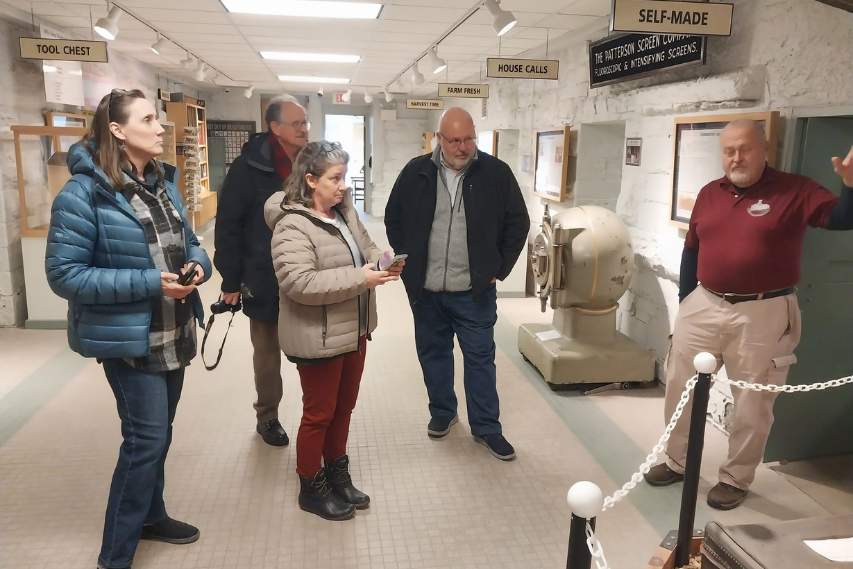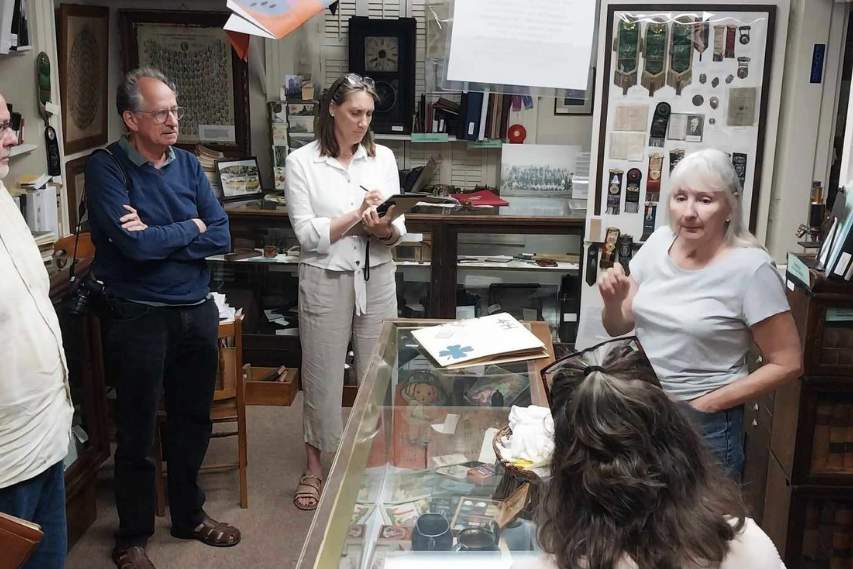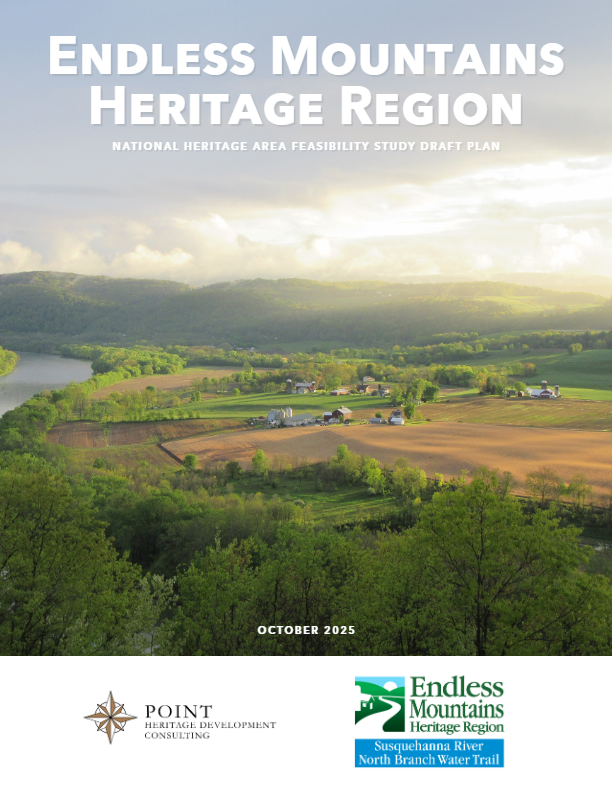
Please support the EMHR and our pursuit of a National Heritage Area designation. Have a look at our draft feasibility study outlining our region’s national significance.
Click to view the feasibility study.
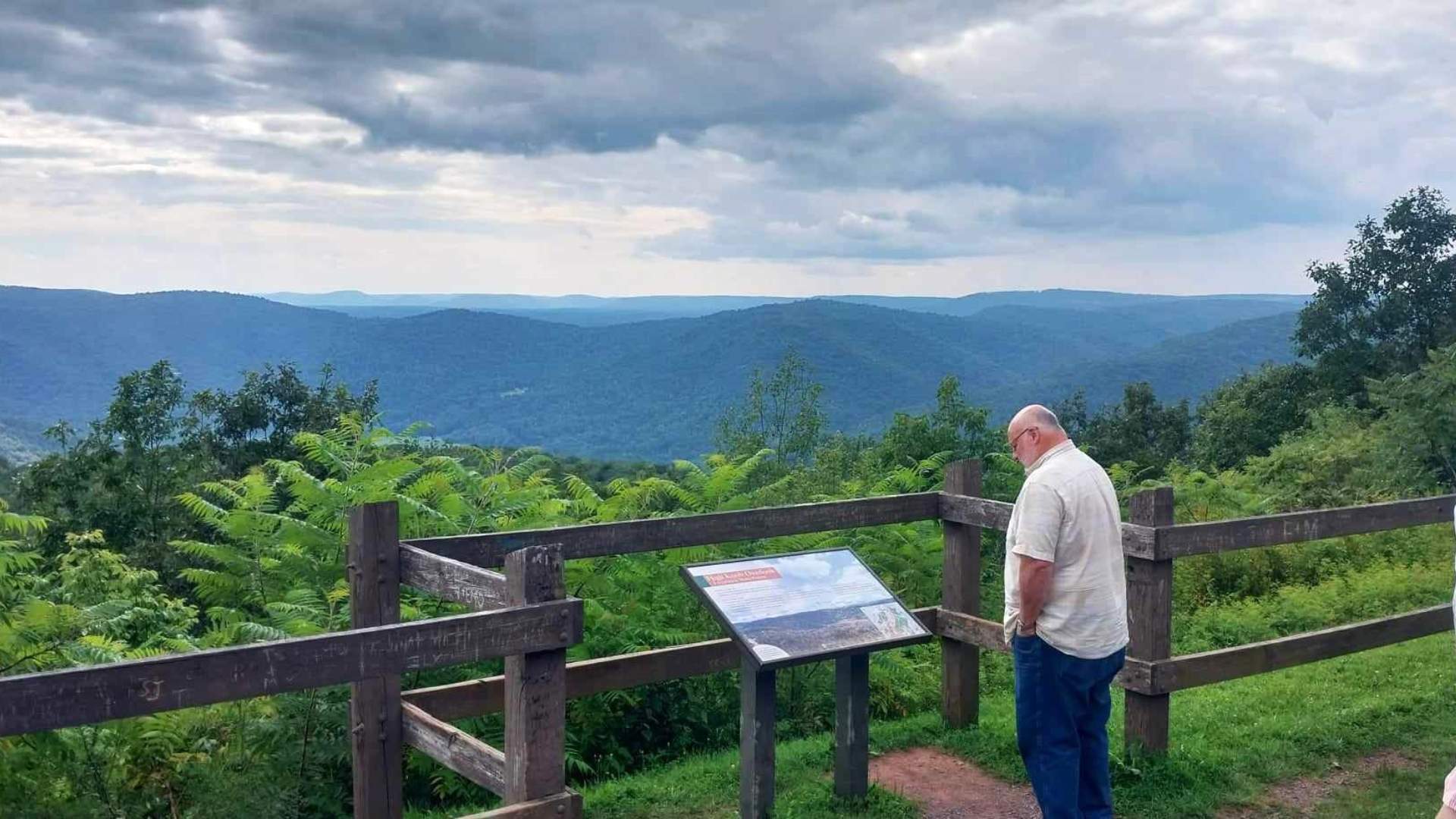
National Heritage Area Campaign
After 26 years as a state-designated Heritage Area in the Commonwealth of Pennsylvania under the Department of Conservation and Natural Resources, the Endless Mountains Heritage Region (EMHR) is taking steps to achieve a National Heritage Area designation under the National Parks Service. The EMHR is currently undergoing a feasibility study for an NHA designation with Point Heritage Development Consulting of Lakewood, CO to see if the organization has what it takes to become the seventh NHA in Pennsylvania. The study will also determine and illustrate the Endless Mountains’ “story of national significance”, which is required when becoming an NHA. This designation also takes a literal act of Congress to obtain, requiring a carefully planned legislative endeavor to gather support and pass the required laws.
To kick off the development of legislative support for the Endless Mountains National Heritage Area Feasibility Study, the EMHR and its consultants held meetings in Washington, DC, from February 5th to 7th, 2024. Meetings included House and Senate staff and Senate committee staff, marking the initial steps in advancing the feasibility study and garnering legislative backing. We have been in contact ever since to ensure we can keep the process moving forward.
The EMHR and its consultants have also held two public meetings at the Dietrich Theater in Tunkhannock and the Keystone Theatre in Towanda, where we received wide support for our NHA pursuit. We also conducted a public survey that garnered nearly 600 participants, which also showed overwhelming support for the Endless Mountains obtaining an NHA designation. If you’re interested in helping our organization and region achieve National status, please write or contact your state and federal legislators to voice your support. It is imperative that we have the backing of our Endless Mountains residents and visitors to achieve this designation!
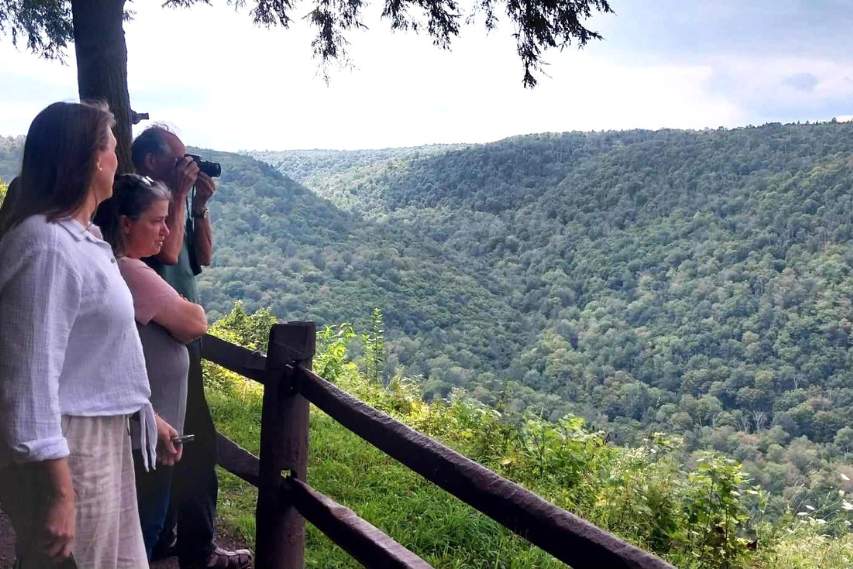
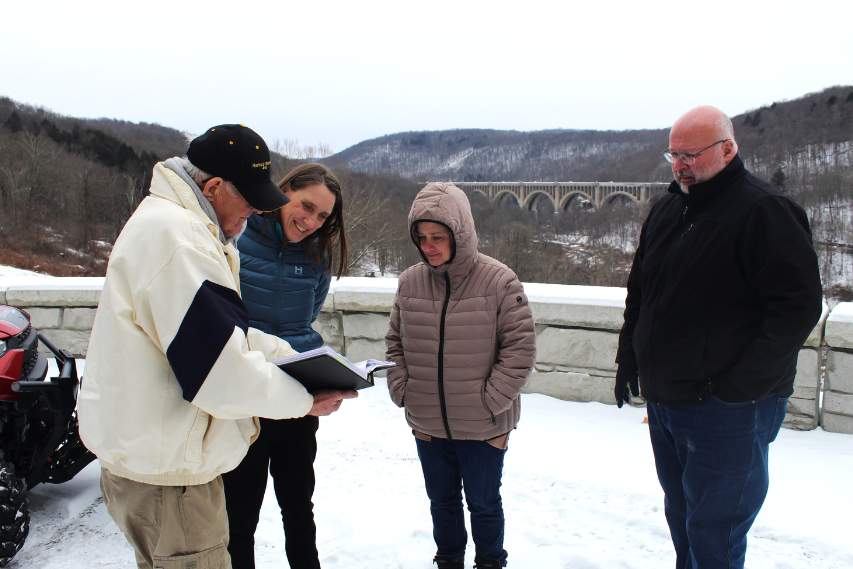
Regional Benefits of Becoming an NHA
National Heritage Areas offer numerous benefits to the communities included within them. Some of these benefits include:
Preservation of Cultural and Natural Resources
NHAs typically aim to conserve and protect significant cultural, historic, and natural resources within a designated region. This preservation helps maintain the unique character and identity of the area for future generations.
Promotion of Tourism and Economic Development
Designation as an NHA often leads to increased tourism as visitors are drawn to explore the region’s historical sites, scenic landscapes, and cultural attractions. This influx of tourists can boost local economies through spending on lodging, dining, shopping, and other services.
Community Engagement and Education
NHAs often sponsor educational programs, interpretive exhibits, and community events that engage residents and visitors alike in learning about the area’s heritage. These activities can foster a sense of pride and stewardship among community members while also raising awareness about the region’s significance.
Partnerships and Collaboration: Collaboration among various stakeholders,
Partnerships and Collaboration
Collaboration among various stakeholders, including government agencies, nonprofit organizations, businesses, and local communities, is essential for the success of NHAs. These partnerships facilitate coordinated efforts in resource management, conservation, and sustainable development.
Enhanced Quality of Life
Preservation of natural landscapes, historic sites, and cultural traditions can contribute to an improved quality of life for residents by providing recreational opportunities, preserving green spaces, and fostering a sense of community pride and identity.
Grant Funding and Technical Assistance
NHAs often have access to federal grant funding and technical assistance programs to support conservation projects, heritage tourism initiatives, and community development efforts. These resources can help communities leverage additional funding and expertise to address local needs and priorities.
Increased Visibility and Recognition
Designation as an NHA can raise the profile of a region nationally and internationally, attracting attention and recognition for its cultural, historical, and natural significance. This increased visibility can lead to additional opportunities for investment, collaboration, and promotion.
Economic/Business Benefits of National Heritage Areas
National Heritage Areas (NHAs) can have several economic impacts on the regions in which they are established. These impacts can include:
Job Creation
NHAs can generate employment opportunities directly and indirectly. The development of tourism infrastructure, such as hotels, restaurants, and recreational facilities, creates jobs in the hospitality sector. Additionally, the promotion of cultural and heritage activities can lead to job creation in fields such as interpretation, tour guiding, event management, and artisan crafts.
Increased Visitor Spending
NHAs can attract a larger number of tourists, resulting in increased visitor spending in the local economy. Tourists spend money on accommodations, dining, shopping, transportation, and recreational activities, providing a direct boost to local businesses. This spending can have a multiplier effect as it circulates through the economy, supporting additional jobs and generating income for the local community.
Revenue Generation
The economic activities generated by NHAs can result in increased tax revenues for local and regional governments. The taxes collected from visitor spending, sales tax, hotel occupancy tax, and other forms of taxation on tourism-related activities can contribute to public funds. These revenues can be utilized for infrastructure development, community services, and further conservation efforts.
Preservation of Historic Properties
NHAs often prioritize the preservation and restoration of historic buildings and landmarks. This preservation activity can create employment opportunities in construction, architectural restoration, and historic preservation trades. It also contributes to the revitalization of historic downtown areas, increasing property values and attracting new businesses and investments.
Entrepreneurship and Small Business Development
NHAs can foster entrepreneurship and small business development by providing resources, training, and grants to local enterprises. This support can encourage the establishment of heritage-based businesses, including artisan workshops, heritage tours, local food and craft markets, and specialty stores. These small businesses contribute to the diversification of the local economy and help sustain cultural traditions.
Community Development
NHAs often engage local communities in planning, decision-making, and implementation processes. This involvement can lead to community development initiatives, including the improvement of infrastructure, the enhancement of public spaces, and the provision of amenities for residents and visitors alike. These efforts contribute to a higher quality of life for local communities and can attract new residents, businesses, and investments.
Cultural Heritage Industries
NHAs can support the growth of cultural heritage industries such as crafts, traditional arts, music, and storytelling. These industries can create economic opportunities for local artisans, performers, and cultural practitioners. By promoting and preserving cultural traditions, NHAs contribute to the sustainability of cultural heritage and the economic viability of associated industries.
It is important to note that the economic impacts of NHAs can vary depending on factors such as the size and popularity of the area, the effectiveness of marketing and promotion efforts, the level of community engagement, and the presence of supporting infrastructure. Effective management and sustainable planning are crucial to maximizing the positive economic impacts of NHAs while preserving their heritage values.
Economic Impact Studies
As directed by the U.S. Congress, the National Park Service has conducted economic impact assessments of several NHAs. Here’s a link to the NPS website where those studies reside:
https://www.nps.gov/subjects/heritageareas/economic_impact_studies.htm
"The significance of the region lies not in a few individual landmarks of national merit, but in hundreds of local resources knit together into a single, richly textured regional blanket."


